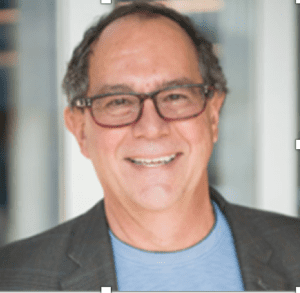KEYNOTE SPEAKERS
KEYNOTE 1: Engineers Creating Safe “Machines” – From birth to death
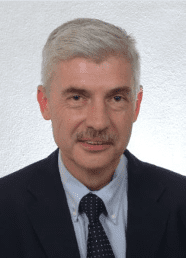
Dr. Hendri Geldenhuys
Consultant
Lightning Protection and High Voltage Insulation
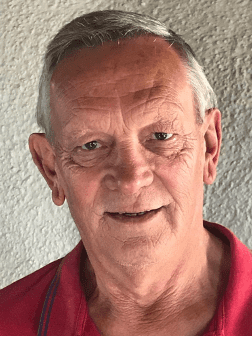
Koos Kraftt
Senior Consultant,
Engineering Processes
Date: Monday 23rd August, 2021
ABSTRACT:
Typical Engineers are people with an extraordinary interest in things rather than people. This is our strength as well as our weakness. In the many years of experience, we have in the Electric Power Industry, this strength and weakness played out in the way design engineers approach their tasks often producing suboptimal outcomes with conflict between the designer and the operator and maintenance staff. Often a level of arrogance come to the fore where designers believe they have the solution, if only the rest will fall into line. The paper draws attention to the need that designs has to consider not only the ingenious idea of a designer, but it must also consider the complete life of the “machine” even contemplating the “death” of the machine. Equally the operator and maintainer of the equipment must be consulted and respected to ensure a machine that serves its purpose optimally, over its entire life.
The paper draws attention to the problem and call for understanding and consideration thereof. It raises the question what kind of preparation should be done in the early education, training and forming years of engineers to assist them to produce holistic designs.
BIO:
Dr Hendri Geldenhuys has been working in the South African power industry for more than 41 years: He is an Electrical Engineer currently working as an independent consultant. He has worked for Eskom for more than 27 years. Prior to that he was part of the CSIR’s team well known for the work done on lightning protection of engineering systems and high voltage research.
Dr Geldenhuys is an expert on lightning protection and high voltage insulation with papers published internationally. He is in particular an expert on Medium Voltage system insulation design as well as Low Voltage. This also focuses on safety related aspects of these systems with respect to electrocution and other damage. He has extensive experience in power system loading at MV and LV level. More recently he has been intimately involved in the South African wiring code for embedded generators.
He served on numerous SANS standards committees and has been involved with CIGRE work over decades. Hendri was the President of the South African Institute of Electrical Engineers for 2018 term.
He has a B Eng. (Electrical) 1979, B Eng. Honours 1982, M Eng. 1986 all at the University of Pretoria and a PhD from WITS in 1994.
Koos Kraftt was a Senior Consultant: Engineering Processes in Eskom Distribution Technology up to his recent retirement. He has 42 Years of Service with Eskom. He facilitated High Volt electrical construction, maintenance and operating standards and procedures in compliance to the Occupational Health and Safety Act 85 of 1993, all incorporated Regulations and industry standards.
Facilitated the maintenance and revision of the Eskom Operating Regulations and is the compiler of NRS 040: Operating Regulations for High Voltage Systems rationalised for the South African electrical industry.
Koos provided High Voltage – Technical Forensic Investigations for Generation, Transmission and Distribution of electrical contact incidents leading to disabling injuries and fatalities. It includes the detail engineering analysis, to root cause analysis, supporting the Human Performance analysis.
Koos also provided assistance to Senior Legal Counsel in cases of Civil and Criminal litigation by and against Eskom and served as Expert Engineering witness in a variety of court cases.
Koos also held the rank of Major in the South African Army signal core and was acting commander of 7 Signal Group of 7 Infantry Division.
Koos holds a National N6 Certificate obtained from the Technical Collage of Witbank and a Masters of Business Administration from University of South Africa (UNISA).
KEYNOTE 2: African Leadership and Diversity in STEM

Urenna Onyewuchi, Ph.D
Owner and Director of the A Professional Africa platform
Date: Tuesday 24th August, 2021
ABSTRACT:To be updated
BIO:
Urenna Onyewuchi, Ph.D. is the owner and director of the A Professional Africa platform (aprofessionalafrica.com). She is heralding change in education, workforce development and workforce satisfaction of African committees and economically disadvantaged communities in the United States of America and the globe. She has Master’s and doctorate degrees in electrical engineering with a specialization in asset management of systems (soft or hard) from top-tier university, Georgia Institute of Technology, and an undergraduate degree in electrical engineering from Virginia State’s George Mason University. She is a subject matter expert in education, power quality, energy management, smart metering, fire-root cause analysis, etc. from her tenure with Corning Incorporated. Dr. Onyewuchi branded and established the IEEE Power Africa Conference as a leading annual technical conference on the African continent with research and development (R&D) on products and services to increase electrification in Africa. She has led Women in Power sessions for the conference and can be reached at www.linkedin.com/in/urenna.
KEYNOTE 3: HAC - Frontiers of Sustainable Technologies
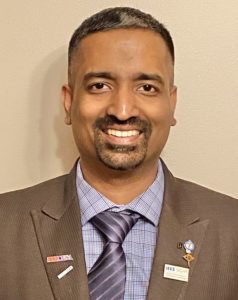
Sampathkumar Veeraraghavan
Global Chair,
2021 IEEE Humanitarian Activities Committee
Date: Tuesday 24th August, 2021
ABSTRACT:
This keynote talk will focus on how emerging technologies offer a transformative opportunity to address pressing global sustainable development challenges. We will discuss real world examples of sustainable technologies that are relevant to achieve the Sustainable Development Goals. We will explore how IEEE Humanitarian Activities Committee (IEEE HAC) offers high-impact engagement opportunities to advance technologies for the benefit of marginalized communities globally.
BIO:
Sampathkumar Veeraraghavan is a globally renowned technologist best known for his technological innovations in addressing global humanitarian and sustainable development challenges. He is a seasoned technology and program/product management leader with over 16 years of experience in Top 500 Fortune companies. Throughout his career, he has led business critical strategic programs and successfully delivered cutting-edge technologies in areas of conversational Artificial Intelligence (AI), Natural Language Understanding, cloud computing, enterprise systems, infrastructure technologies, assistive and sustainable technologies. He has delivered 250+ invited talks in International forums, premier technology conferences and industry panels.
As the Global chair of 2021 IEEE Humanitarian Activities Committee (IEEE HAC), Sampath spearheads the global strategy and portfolio of sustainable development and humanitarian engineering programs to deliver impactful programs at grass root-level. He is credited with launching several novel global programs in humanitarian engineering which successfully inspired and engaged students and young professionals in sustainable development activities globally. Sampath was the Global Chair (2019-2020) of IEEE Special Interest Group on Humanitarian technologies (SIGHT), leading the program to record-breaking growth through high-impact, technology-driven sustainable programs benefiting members in 119+ countries. He is the founding chair for the IEEE SIGHT day (2020) and SIGHT week (2019), a global program that showcases the impactful IEEE technology-based humanitarian programs. He currently heads the IEEE Standard’s 2021 corporate sustainability working group. As an active IEEE and IEEE-HKN member, he has spearheaded more than 20+ technology centric global programs/committees. Read more
KEYNOTE 4: Achieving Universal Electricity Access under the Net Zero Carbon Future
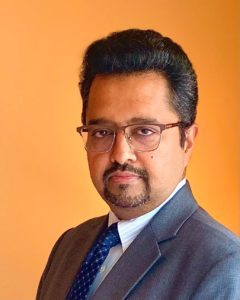
Raihan Elahi
Lead Energy Specialist,
Infrastructure Practice Group,
Africa Region, The World Bank
Date: Tuesday 24th August, 2021
ABSTRACT:
Climate change is currently the gravest global threat facing humankind. Development and growth fueled by conventional fossil fuel is the major cause of greenhouse gas emissions contributing to climate change. To address this threat a path to net zero carbon future is under discussion, but how will this affect the developing countries in Sub Saharan Africa, where about 570 million people are living without access to electricity, and about 910 million people don’t have access to clean cooking solutions? Will they continue to live in energy poverty so the world can fight climate change? Will Sub Saharan Africa continue to sacrifice their own development to benefit the rest of the World? Are there ways to achieve universal electricity access and provide access to clean cooking solutions? Ensure access to affordable, reliable, sustainable, and modern energy for all in a net zero carbon future? A deep dive on select Sub Saharan African countries energy sector strategy reveals their development plans to benefit from regional integration, available renewable energy resources with support from Development Financial Institutions and by engaging private sector. How can Africa achieve their energy sector targets, create more sustainable jobs for their citizens and develop their economy?
BIO:
Mr. Raihan Elahi is a Lead Energy Specialist of the Infrastructure Global Practice of the World Bank with extensive experience in electricity sector policy, regulation, utility reforms, regional integration, energy finance, guarantees, renewable energy and energy access. Over the last two decades, he has supported client governments in Africa and South Asia to introduce new policies, implement public private partnerships and design innovative projects to push the boundaries of energy sector development.
Mr. Elahi is a thought leader in promoting innovative technologies and disruptive business models to help countries achieve their development targets in a faster and sustainable manner. Some publications of his work includes: (i) Livewire: Increasing Human Capital by Electrifying Health Centers and Schools through Off-Grid Solar Solutions (January 2020), (ii) Economic Review: Energy-Saving Effects of Progressive Pricing and Free CFL Bulb Distribution Program: Evidence from Ethiopia (June 2019), (iii) Policy Research Working Papers: Sustainability of a Residential CFL Distribution Program: Evidence from Ethiopia (October 2016), (iv) Livewire: Scaling Up Access to Electricity: The Case of Bangladesh (June 2014), (v) Policy Research Working Papers: Impact Evaluation of Free-of-Charge CFL Bulb Distribution in Ethiopia (March 2013). Mr. Elahi holds a Masters in Statistics and MBA in Finance.
KEYNOTE 5: Entrepreneurship
ABSTRACT:
Update on upcoming Entrepreneurship Workshop.
BIO:
Ken Stauffer served as the 2020 Chair of the IEEE Entrepreneurship Steering Committee and the Chair of the Vaughn College Board of Trustees in NYC.
Ken has spent 30+ years in the telecommunications industry. He began his career at AT&T Bell Laboratories in Holmdel, NJ after receiving his AAS from Vaughn College, a BSEE from Pratt, and an MSEE from Polytechnic University in New York City.
Ken left AT&T in 2000 to become an entrepreneur as part of a management team founding EPIK Communications serving as the Senior Vice President of Operations and Chief Technology Officer.
He went on to found Cypress Equipment (2003), Technology Assurance Labs (2010) and co-founded the IEEE Entrepreneurship Initiative in 2015.
He was born and raised in Tanzania, East Africa, and is a Life Senior Member of IEEE.
KEYNOTE 6: Harmonization of Standards towards the Operation of the African Continental Free Trade Agreement (AFCFTA) – AFSEC’s perspective
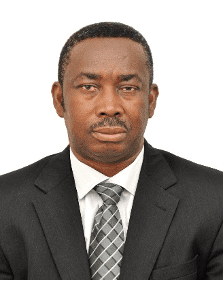
Ing. Bernard Kofi Tawia Modey
President of the African Electrotechnical Standardization Commission (AFSEC)
Date: Wednesday 25th August, 2021
ABSTRACT:
The launch of the AFCFTA in Accra in January 2021 signifies a giant step towards the promotion of trade that will not only generate employment opportunities for our citizenry but also indirectly improve their standard of living.
Lack of harmonized standards were identified very early among the Technical barriers to trade (TBT) and various entities linked to harmonization of standards, regulations and conformity assessment have been working to reduce these barriers. AFSEC has been working with other partner institutions like ARSO, AFRAC and AFRIMET to address these barriers.
AFSEC is concerned not only with goods but also with systems. We see harmonization of the specifications of our electrical systems through the various power pools (WAPP, EAPP, SAPP, NAPP) as central to unleashing the vast energy resources and potentials that will help drive the industrialization and development of the African continent.
It is in light of the above that AFSEC is delighted at every collaborative opportunity between it and similar institutions like IEEE that has gained a lot of popularity on the continent in recent times to work together to improve the socio-economic situation of our people
BIO:
Ing. Bernard Kofi Tawia Modey was elected as the President of the African Electrotechnical Standardization Commission in July 2019 in Cairo, Egypt.
He worked for the Volta River Authority in Ghana for 15 years in both technical and managerial positions. He later joined the Ghana Grid Company as a Senior Manager and later became the first Director of the Southern Network Services Department. He also served briefly as the Director of Human Resources and Services before his appointment as Director System Operations.
He was a member of the Engineering and Operating Committee (EOC) and later the Strategic Planning and Environment Committee (SPEC) of the West Africa Power Pool (WAPP). He was the Chairman for Joint Committees (EOC/SPEC/FINANCE/HRG) meeting of the West African Power Pool (WAPP) in Grand Bassam in 2014. Read More
KEYNOTE 7: IEEE in Africa
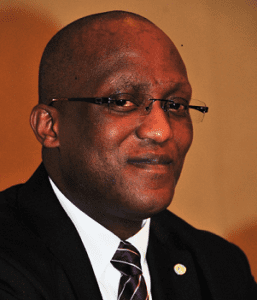
Vincent Kaabunga, SMIEEE
Chair,
IEEE Africa Council.
Date: Thursday 26th August, 2021
ABSTRACT:
The IEEE Africa Council brings together fourteen African Sections and Subsections across Africa to collaborate on joint activities, representing and giving a voice to IEEE members in Africa. The Council was formed in Nov 2018 and its current membership includes Algeria, Botswana, Burkina Faso, Ghana, Kenya, Liberia, Mauritius, Morocco, Nigeria, South Africa, Tanzania, Tunisia, Uganda and Zambia. The presentation will chart the Institute’s efforts to expand its presence in the region and the Council’s work in supporting IEEE members in Africa and responding to the unmet needs of the African engineering community as a whole.
BIO:
Vincent Kaabunga is a Knowledge Management and Organizational Development Specialist with cross-training in Engineering, Management and M&E. He studied Electrical Engineering at Makerere University and pursued post-graduate studies in Information Technology at the University of Pretoria and Strategic Business Management training at the Strathmore Business School.
Vincent is a Telecommunications Engineer and a Senior Member of the IEEE. He has worked extensively in a professional capacity across Eastern and Southern Africa, and in South East Asia. He has over 20 years of experience in sustainable development and organizational capacity development.
He is a member of the IEEE Communications Society, the IEEE Computer Society, the IEEE Standards Association and IEEE Women in Engineering. He has served as liaison to the IEEE Board of Directors, Chair of the IEEE Kenya Section, and in various regional capacities. He has actively led and supported efforts on the ground that have seen the formation of new IEEE Sections, Student Branches, local Technical Chapters and, most recently, the IEEE Africa Council.
KEYNOTE 8: Integrated Resource Planning for National Electric Power Infrastructure - a Vehicle for Sustainable Development and much more
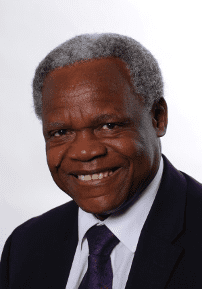
Professor Joseph Mutale
Professor of Sustainable Energy and Electric Power Systems (Emeritus),
Department of Electrical and Electronic Engineering,
The University of Manchester.
Date: Friday 27th August, 2021
ABSTRACT:
In recent years integrated resource plans have increasing been embraced as a vehicle for holistic development of national power infrastructure. This keynote address will touch on the main dimensions of integrated resource planning from technical issues (demand forecasting, generation, transmission, and distribution planning) to cross cutting issues such as social inclusion, job creation, climate and environmental impacts including regulatory, financing and procurement aspects. Some key challenges in the context of developing countries are discussed such as how to best ensure the plans are implemented and achieve indented outcomes.
BIO:
Professor (Emeritus) Joseph Mutale was born in Zambia and educated in Zambia, Norway and the UK. He obtained a BEng degree in Electrical Machines and Power Systems from the University of Zambia in 1981, a postgraduate diploma in Electric Power Distribution Systems from the Norwegian Institute of Technology between 1983 and 1984. His MSc in Electric Power Transmission and Distribution and PhD in Power System Economics were obtained from UMIST, which is now part of the University of Manchester, in 1987 and 2000 respectively. Prior to his retirement on 30 September 2020, he was a Professor of Sustainable Energy and Electrical Energy Power Systems at the University of Manchester, UK. Prior to joining the University of Manchester in 2002, he spent over 15 years in the electric utility industry in Zambia. His industrial experience includes a wide range of technical posts at Copperbelt Power Company, now Copperbelt Energy Corporation and ZESCO, the Zambian National Utility. The posts at the national utility included Transmission Manager and Director of Engineering Development. He was worked extensively in renewable energy and co-founded the Zambia Renewable Energy Association and is the Director the Education Partnerships in Africa project in Zambia. He is also subject matter expert supporting creation of World Bank funded African Centres of Excellence in Renewable Energy. He has also supported curriculum development for the Pan African University Centre of excellence in Water and Renewable Energy including Climate change (PAUWES) in Algeria and redevelopment of the MSc programme in Renewable Energy at the University of Zimbabwe. Prof Mutale is a Chartered Engineer and Fellow of IET (Institute of Engineering and Technology, UK) and EIZ (The Engineering Institution of Zambia) and Senior Member of IEEE (USA).
KEYNOTE 9: Power as a driver for circular economy and climate change
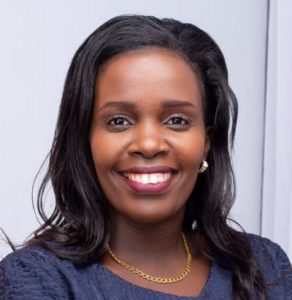
Martha Cheruto
Deputy Chief Executive Officer
Kenya Private Sector Alliance (KEPSA)
Date: Friday 27th August, 2021
ABSTRACT:
To be updated
BIO:
Martha Cheruto is the Deputy Chief Executive Officer at the Kenya Private Sector Alliance (KEPSA); the private sector apex body that brings together the business community under a single umbrella to engage and influence public policy for an enabling business environment.
A seasoned Engineer with a wealth of experience in both public and private sector, Martha has a track record of contributing to the overall growth strategy of organizations. She is highly accomplished in advocacy, coordination of project activities, stakeholder management, public policy formulation, private sector sustainable development, energy, climate change, green growth, and Government relations. She has co-chaired two national task forces spearheading development of Climate Change Policy, Climate Change Act 2016 and Green Economy Strategy and Implementation Plan. As a Certified Energy Manager, Martha has been instrumental in promoting adoption of energy efficiency and conservation on a national scale.
Prior to joining KEPSA, Martha worked in Kenya Power and Lighting Company (KPLC) and Kenya Association of Manufacturers (KAM). During her tenure at the organizations, she has supported manufacturers in facilitating a conducive environment for trade, business development and supply efficiency. She has been a speaker and a facilitator in local and global conferences on energy, climate change and private sector development. She is actively involved in mentorship, women empowerment, and community development through her representation as a council member of FGM to STEM; a program under Women in Energy. Read more


